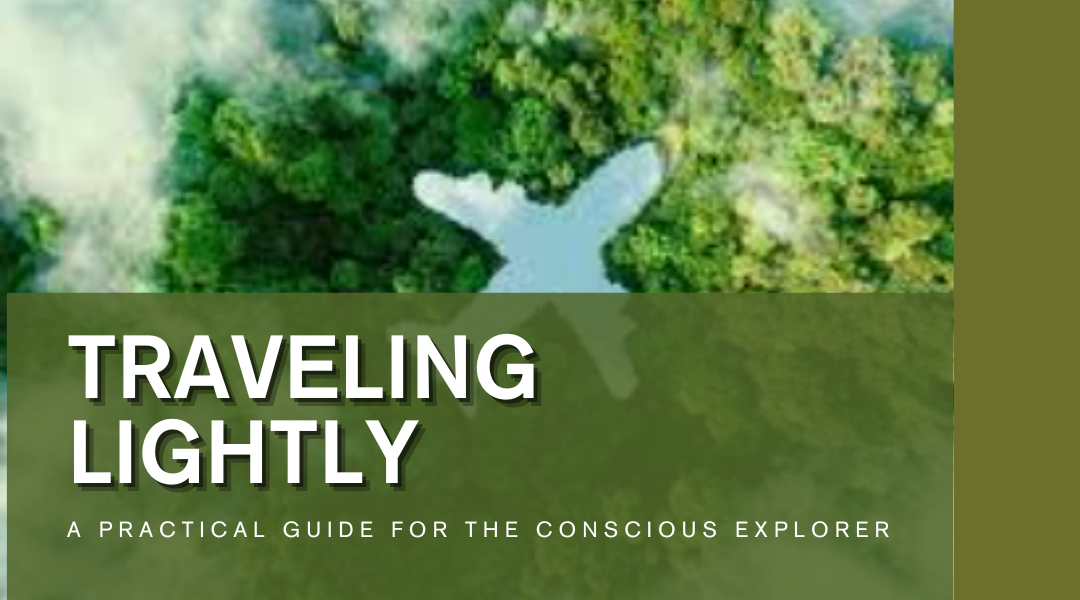The world is full of breathtaking places, and the desire to see them is a beautiful part of being human. But as we venture out, it’s becoming increasingly clear that how we travel matters just as much as where we go. The classic tourist model often takes more than it gives, leaving strained ecosystems and overwhelmed communities in its wake.
The good news? A new way of exploring is taking root. This isn’t about sacrifice; it’s about a deeper, more meaningful connection to the places we visit. It’s about shifting from being a mere consumer of destinations to becoming a thoughtful guest. By weaving a few conscious practices into our journeys, we can ensure our wanderlust helps preserve the magic for others.
Your Blueprint for Mindful Adventure
1. Become a Zero-Waste Trailblazer (Or Close To It)
The fight against plastic pollution starts in your own backpack. Instead of just “reducing waste,” aim to leave no trace behind.
- Go Beyond the Bottle: A reusable water bottle is a great start, but take it further. Pack a reusable coffee cup for your morning brew, a set of bamboo cutlery for street food, and a collapsible container for leftovers. In destinations where tap water isn’t safe, invest in a high-quality water filter bottle or purification tablets, which are far cheaper and less wasteful than buying countless plastic bottles.
- Rethink Your Souvenirs: Skip the mass-produced trinkets. Your most meaningful souvenirs might be a hand-woven textile from a local artisan, a hand-ground spice from a market, or simply the skills you learn in a local cooking class. These purchases support real people and come with minimal, if any, plastic packaging.
2. Rethink How You Move
Transportation is the elephant in the room when it comes to travel’s carbon footprint. While we can’t always avoid flights, we can be smarter about how we get around once we’re there.
- Embrace the Slow Journey: Is there a train or bus route that’s part of the adventure? A scenic rail journey through the mountains can be a highlight in itself, not just a way to get from A to B. When you fly, consider staying longer in one region instead of hopping on multiple short-haul flights.
- Explore Like a Local: Once at your destination, your two feet are your most sustainable asset. Walking and cycling not only cut emissions but allow you to discover hidden alleyways, charming cafes, and spontaneous encounters you’d miss from a car window. When you need to go further, use local trains and buses—it’s a fantastic way to immerse yourself in the daily rhythm of a place.
3. Let Your Wallet Do the Talking
Where you spend your money directly shapes the tourism landscape. Choose to support businesses that are invested in their community and environment.
- Sleep and Eat Local: Opt for a family-run guesthouse or an eco-lodge that sources its food locally and employs people from the village. Eat at a restaurant that celebrates regional cuisine rather than an international chain. This ensures your money circulates within the local economy, empowering residents.
- Choose Ethical Experiences: Be wary of any tour that promises hands-on interaction with wild animals. Instead, seek out reputable sanctuaries and conservation projects where the focus is on observation and welfare. A responsible whale-watching tour, for instance, will maintain a respectful distance, prioritizing the animals’ well-being over a perfect photo op.
4. Travel with Respect, Not Just a Camera
Being a guest means honoring the house rules—both cultural and environmental.
- Do Your Homework: Learn a few basic phrases in the local language. Understand the dress code, especially when visiting temples or sacred sites. A little effort shows respect and opens doors to warmer interactions.
- Leave Landscapes Untouched: That “instagrammable” flower is part of a delicate ecosystem; that ancient ruin is fragile. Stay on marked trails to prevent erosion, never remove natural or historical objects, and observe wildlife from a distance. The best memories are the ones you take in your heart, not in your pocket.
5. Seek Out Stories, Not Just Sights
Shift your focus from passive sightseeing to active learning. The most rewarding travels are those that change your perspective.
- Volunteer Your Time (Wisely): Instead of a generic tour, could you spend a day helping with a beach clean-up organized by a local group? Or volunteer a few hours at a community garden? Ensure any volunteering, especially with children, is ethical and well-vetted.
- Follow the Green Leaders: Seek out cafes powered by solar panels, tours that explain local reforestation efforts, or farms practicing permaculture. By engaging with these pioneers, you’re not just a tourist; you’re a participant in their story of sustainability.
The Ripple Effect of Your Journey
In the end, conscious travel is a mindset. It’s understanding that our individual choices, however small they seem, create a collective ripple effect. When we choose to travel lightly, we cast a vote for a world where tourism is a force for good—a world where local communities thrive, wildlife is protected, and pristine places remain pristine.
This isn’t about achieving perfection; it’s about making better choices, one step at a time. So pack your reusable bottle, learn a few local words, and step out with an open mind and a light tread. The world is waiting to be explored, and the way we explore it can help ensure it stays wondrous for all who follow.
